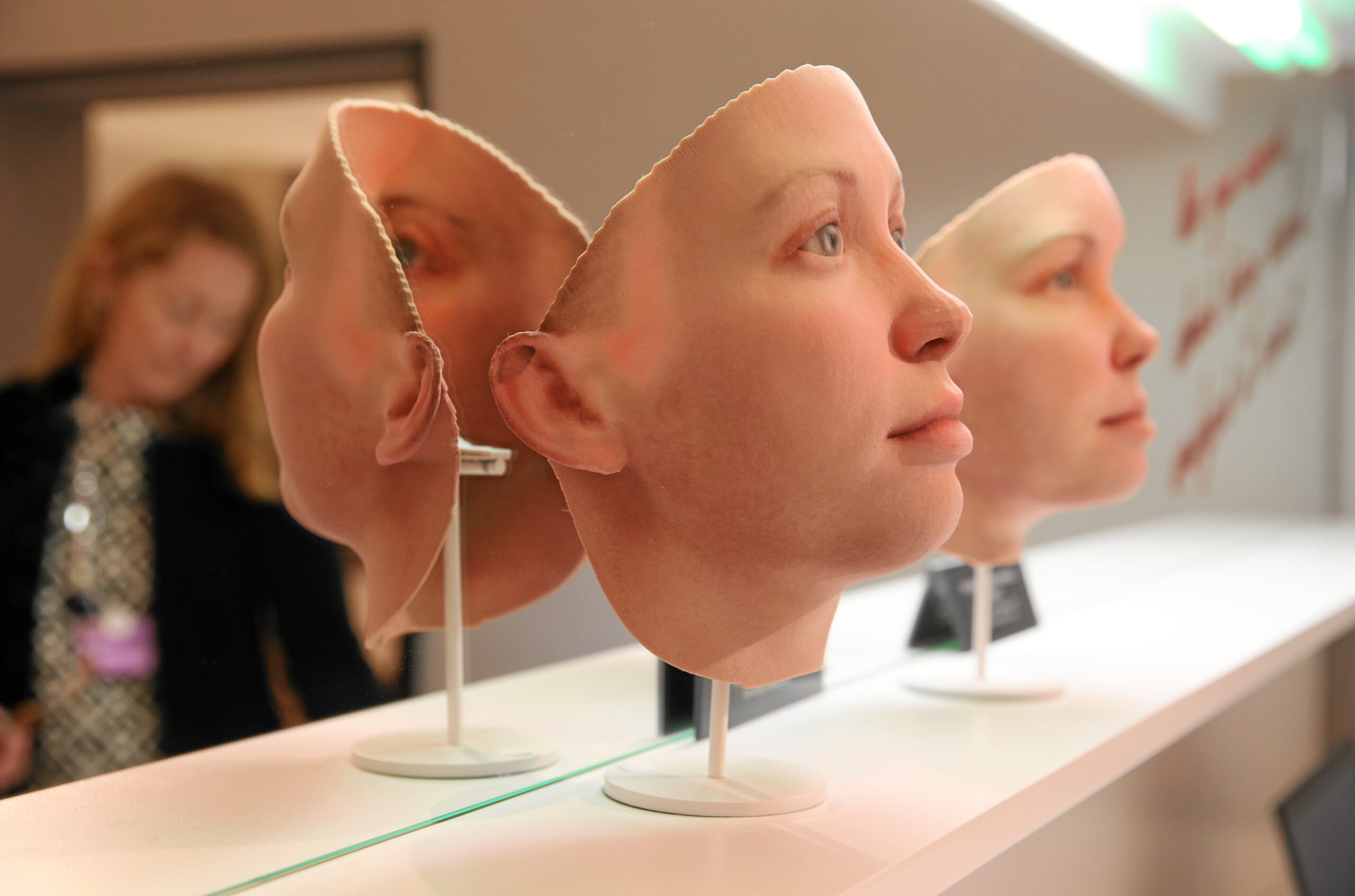Radical Love
Heather Dewey Hagborg
2015, USA
Genetic materials, custom software, 3D-prints, documentation

2015, USA
Genetic materials, custom software, 3D-prints, documentation
In 2015 Heather Dewey Hagborg was approached by Paper Magazine who wanted to illustrate an interview with Chelsea Manning, the US soldier sentenced to 35 years in military prison for leaking state secrets to WikiLeaks, who had changed gender to female in 2013 during her incarceration. Because of Mannings imprisonment, the magazine was not allowed to take photographs of her. Since her gender transition, no one except her family, old friends and lawyers had seen Chelsea Manning.
Based on DNA from cheek swabs and hair clippings sent to her by Chelsea Manning, Dewey Hagborg presented a diptych of life-sized portraits, one with an algorithmically neutral gender, and the other assigned female.
According to Dewey Hagborg, the juxtaposition of both faces ‘draws attention to the problem of utilizing chromosomes or birth-assigned sex to assign gender, as well as a larger issue of what it means to rely on stereotyped ideas of what a gendered face is ‘supposed’ to look like.’ The artwork criticizes the disconnect between our genetic information and our true identity as well as the way technology aims to reduce a person to a mere set of psychical characteristics. It critiques the heteronormative and binary categorizations we place on gender by using the ‘forensic DNA phenotyping process’, which is an increasingly common police practice to create likenesses of unknown suspects from their DNA alone, based on traits it contains, such as eye colour and skin colour.
Heather Dewey Hagborg: ‘The questions that intrigue me are philosophical, scientific, and political. Artistic practice for me is like playing detective in a novel that is always changing; there will be no grand reveal at the end, but the work is a process of constant discovery. All technology is political, and as an artist working with biotechnology, I find it crucial to engage these biopolitics directly. This is also the site I find most exciting artistically, to show the embedded politics in technologies and social structures that might otherwise be missed.’
Dr. Heather Dewey-Hagborg is a New York-based artist and biohacker who is interested in art as research and technological critique. Working on the intersection of art and biotechnology, she became known in 2012 for a series of 3D printed portraits of strangers, created from the DNA she extracted from discarded items, such as hair, cigarettes and chewing gum found on the streets around her Brooklyn home.
Heather has a PhD in Electronic Arts from Rensselaer Polytechnic Institute. She is an Artist-in-Residence at the Exploratorium and is an affiliate of Data & Society. She is a founding board member of Digital DNA, a European Research Council-funded project investigating the changing relationships between digital technologies, DNA and evidence.
Heather has shown work internationally at events and venues including the World Economic Forum, the Daejeon Biennale, the Guangzhou Triennial, the Shenzhen Urbanism and Architecture Biennale, Transmediale, the Walker Center for Contemporary Art, the Philadelphia Museum of Art, and PS1 MoMA. Her work is held in public collections of the Centre Pompidou, the Victoria and Albert Museum, and SFMoMA, among others, and has been widely discussed in the media, from the New York Times and the BBC to Art Forum and Wired.